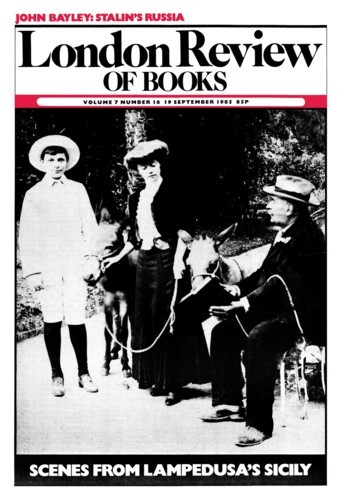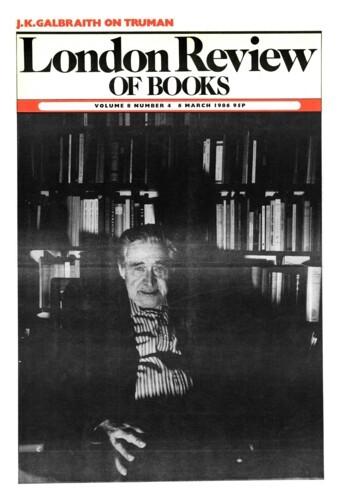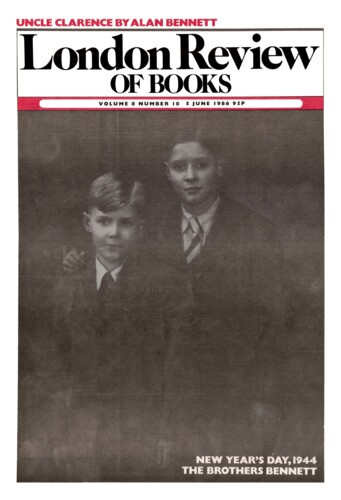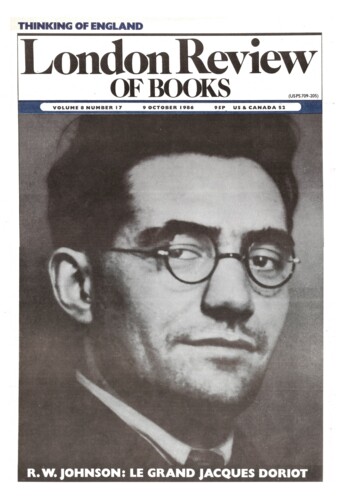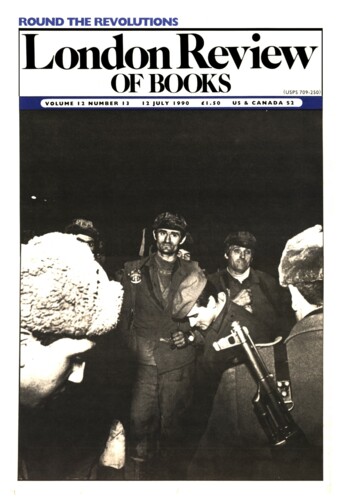Secret Purposes
P.N. Furbank, 19 September 1985
We owe a large debt to the famous chapter on Robinson Crusoe in Ian Watt’s The Rise of the Novel. Watt really made us use our wits about that novel and forced us to relate it to our most serious interests. Reread after twenty years, moreover, the chapter still has all of its intellectual impact and verve. The trouble is, I now find myself wanting to quarrel with almost every sentence in it. The problem is perhaps epitomised by Watt’s dependence on Max Weber, who, I increasingly think, had quite a genius for getting things wrong. Watt, speaking of Crusoe’s methodical book-keeping, quotes Weber on ‘profit-and-loss book-keeping’ being ‘the distinctive technical feature of modern capitalism’. But after all, double-entry book-keeping was a mainstay of commercial prosperity in 15th-century Venice and Genoa (it later became known as ‘the Italian method’). How then can it be ‘distinctive’ of modern capitalism?
